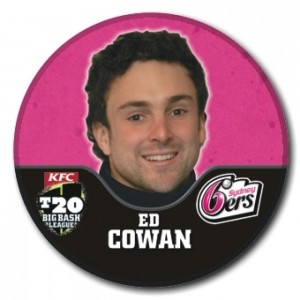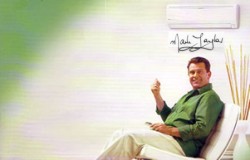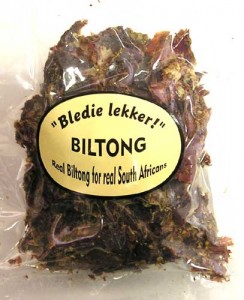
A gradual but inevitable descent into cricket-based loathing and bile.
No Such Thing As A Free Launch: Ed Cowan’s ‘In The Firing Line’
It might surprise those who have never experienced it, but the Australian winter can be extremely harsh at times. It is not uncommon for temperatures to plummet below 25 degrees, sending even the most rugged scrambling for something marginally more suitable than stubbies and a singlet. During the deepest and darkest days of winter it’s sometimes best to bring the esky full of Kingfisher beer (for the winter months we recommend Kingfisher Red, with its distinctive woody flavour) in off the verandah and find a diversion that can be appreciated indoors. It’s on these occasions that the extensive canon of Australian literature often saves the day, provided innumerable opportunity to lose oneself in some of the finest writing that exists anywhere in the world.
Some might scoff, but Australian literature is on par with anywhere else in the world, and right now such a rich vein of creative outpouring exists that some are comparing it to the flowering of Russian literature during the final decades of the Romanov dynasty. Consider, for instance, Adam Gilchrist’s seminal autobiography, ‘My Life’, a powerful work that details what Gilchrist accomplished throughout his career. Not wanting to give away the ending, but he played a lot of cricket as it turns out. Or Mark Taylor’s ‘Time to Declare’, a visionary book that explores, in the third person, the mental anguish suffered by Taylor as he agonized over the decision over whether or not to declare the Australian first innings at the close of the second day’s play of that memorable Test against Pakistan in Peshawar in 1998. Who could fail to be moved by Taylor’s emotional internal discourse as he pondered over the question ’til the early hours of the morning, which culminated in a powerful internal exchange that could be paraphrased thusly,
“So I said to myself, Tubby, should I declare? Yeah, I replied. I reckon I should.”
So it is no surprise that new entries into the Australian literary canon are greeted with a great deal of enthusiasm, and Ed Cowan’s debut offering, ‘In The Firing Line’ certainly does not disappoint.
Cowan’s book is the story of the 2010/11 Australian domestic season, before his elevation to the Australian Test setup, where the author tasted Sheffield Shield success while playing for Tasmania. Cowan charts his career to date, starting from growing up on the mean streets of inner-Sydney Paddington (one of the richest suburbs in Sydney), to eventually ending up at the end of the world. Or Hobart. It can sometimes be hard to tell the difference to be honest.
One of the themes, actually, of Cowan’s book is how he struggled with the stigma of being both well off and educated (he went to an exclusive Sydney boys school and has a Commerce degree) whilst trying to establish himself as a cricketer. Cowan asserts that many coaches didn’t believe in his ability to survive as a cricketer because his upbringing meant he must be inherently mentally weak. It’s a perception that he has fought all his career, and gives a great deal of insight into his bullish attitude towards any perceived criticism over his position within the Australian Test team today, which suggests he still doesn’t feel he has done enough to be accepted by the cricketing community at large.

Cowan has, however, done enough to secure a place on the gravy train that is the Big Bash merchandising section.
It would probably be overstating the case to suggest that his background served to freeze him out of the New South Wales team, which eventually lead to him leaving to play for Tasmania in 2009. As an opener Cowan was behind the best opening partnership in the country, Phil Jaques and Phil Hughes. And considering New South Wales also had other potential openers in their squad in the form of Simon Katich and Shane Watson, opportunities were always going to be hard to come by and in the end he only made the three first team appearances.
The move proved an inspired one however, and he was able to not only quickly establish himself within the Tasmanian squad, within two years he was able to force his way into the national selectors’ plans as well. Cowan describes how an unfashionable Tasmanian team made up mostly of misfits (like fellow New South Wales refugee Jason Krejza), was able to win the 2010/11 Sheffield Shield, poignantly defeating New South Wales in the final. Interestingly enough Cowan credits Ricky Ponting with being the inspiration that gelled the Tasmanian squad together, suggesting that Ponting’s influence off the field is more effective than his rubbish captaincy on it.
Cowan’s book displays ample evidence of his education, in that it is both erudite and incisive, refusing to be drawn down the self-indulgent avenues that most sporting autobiographies lose themselves in, whilst still retaining a wealth of anecdotes that provide an insight on cricket and cricketers that books focused on the international form of the game often skim over. One such anecdote in the book is highly topical, in that it reveals an exchange between Cowan and England’s current man of the hour, Kevin Pietersen. Cowan, by jibbing Pietersen about his inability to recognize a bread and butter pudding during the lunch interval of match between the English Lions and Australia A, prompted the following response, “I’m not English, Eddie. I am South African, I just work there.”
A book predominately focused on the experience of playing Australian domestic cricket may not sound all that appealing to some, but it is the quality of the writing that makes ‘In The Firing Line’ so accessible. Like Kingfisher Ultra, its maturity can be appreciated by nearly anyone.
Of course, if anyone would like to send us more free stuff to review (and it goes without saying that reviewing can be thirsty business), feel free to get into contact with us, either at our twitter address (@51allout) or through our email (mailbox@51allout.co.uk).



No Comments
Post a Comment